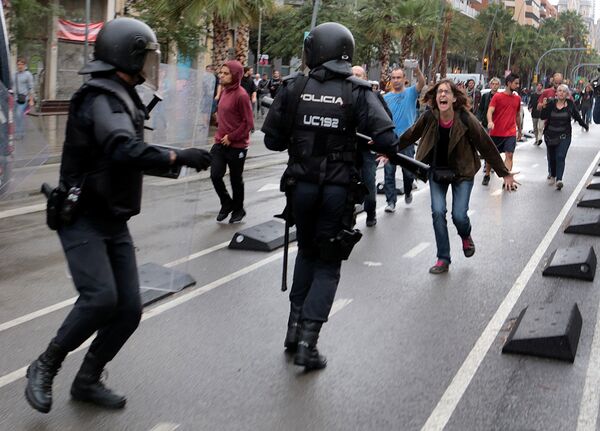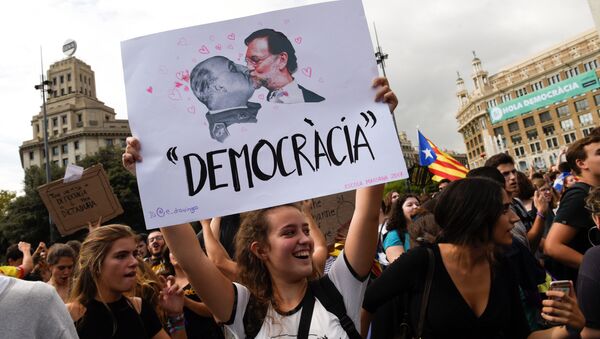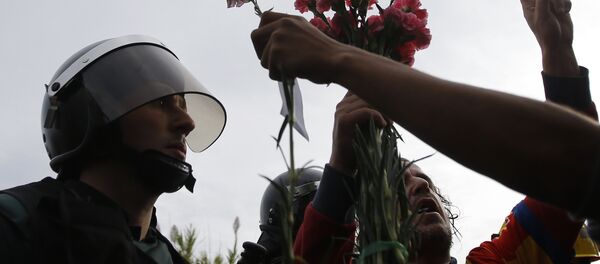The President of the Catalan regional parliament, Carles Puigdemont, has said Catalonia has won the right to statehood, following a vote in favor of independence in a referendum on October 1, which was marred by violence.
Dr. Alejandro Quiroga, a reader in Spanish history at Newcastle University, told Sputnik that to understand the current crisis you needed to accept the history of Spain and the links with the Franco regime.
It began to rise during the 20th century, especially as the dictator Francisco Franco centralized power in Madrid. When Franco died in 1975, one of his ministers, Manuel Fraga, set up the Alianza Popular, a conservative party which renamed itself the People's Party (PP) in 1989.
Spain's current Prime Minister, Mariano Rajoy, is at the head of a PP government, and Dr. Quiroga said there remain links with the Franco regime.
"Many of those running the party today are the sons and daughters of Francoists," Dr. Quiroga told Sputnik.
Franco encouraged a strong, centralized Spain, and although he allowed local folk cultures to flourish in the regions, he was violently opposed to Basque, Catalan and Galician nationalism.
People march to Plaza de Cataluna in #Barcelona https://t.co/tGMAEy0CUD #CatalanReferendum #Catalonia #Spain pic.twitter.com/b4XwKOeb72
— Sputnik UK (@SputnikNewsUK) October 2, 2017
Constitution: 'Designed to Be Hard to Change'
Dr. Quiroga said that ironically the Spanish constitution was drawn up in the late 1970s to protect citizens' rights and to protect freedom of speech and freedom of the press.
"It was designed to be hard to change so as to protect people's rights but it has become a problem because it's very difficult to adapt when there is clearly a problem and a strong demand for independence from Catalonia."
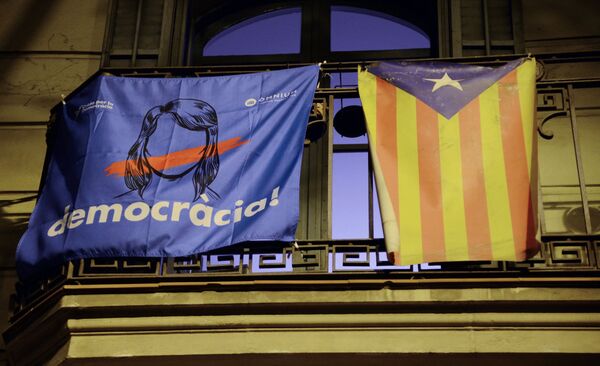
Spanish law has a ban on secession and it's the same as the French, German and Italian constitutions. It is a fairly common standard in western Europe, Dr. Quiroga explained.
He said Britain did not have a written constitution, so it had been easier for the then-Prime Minister David Cameron to pass legislation which allowed for a referendum on Scottish independence.
"In Spain you would first need a national referendum on amending the constitution, then you would need to elect a new parliament and get it passed by a majority of two thirds. It is a very complex process," he told Sputnik.
It certainly seems the UK's unwritten constitution handles secession rather better than Spain's written constitution…..
— Adam Tomkins MSP (@ProfTomkins) October 1, 2017
Mr. Rajoy said Catalans had been fooled into taking part in an illegal vote, and critics have pointed out the turnout in the referendum was only 42.3 percent, while the European Commission has also pointed out Catalonia's referendum was illegal according to Spanish law.
Under Spanish Constitution, vote in #Catalonia was not legal. As @JunckerEU reiterated: internal matter to be dealt in line w/ Const. order.
— European Commission (@EU_Commission) October 2, 2017
What Happens Next?
Dr. Quiroga believes it is difficult to know what might happen in the next few days.
"The Catalan government may declare independence tomorrow [Tuesday, October 3], but the problem is that you need someone to recognize that state, and that is not going to come from Brussels, or London, or Paris or Berlin," Dr. Quiroga told Sputnik.
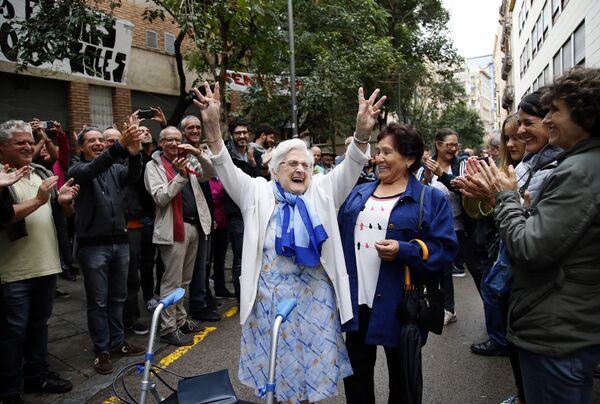
"But on the other hand, the Catalan government has managed to internationalize the problem, not because of the vote, but because of the violence of the Spanish police. It has given a lot of international protection to the independence movement.
"If they declare independence, how will the Spanish government react? Nobody really knows," he added.
